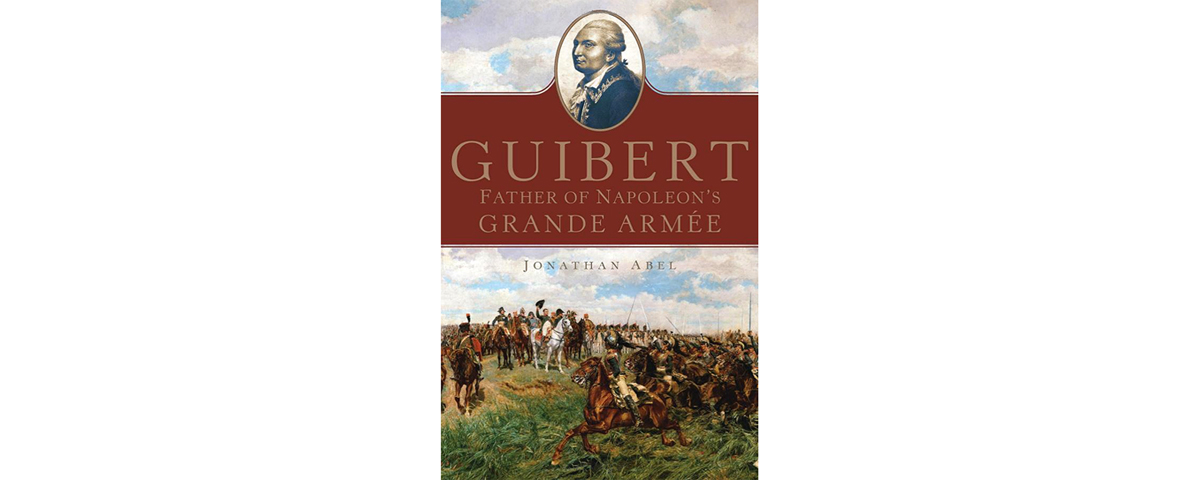Guibert: Father of Napoléon’s Grande Armée, by Jonathan Abel, University of Oklahoma Press, Norman, 2016, $34.95
Jacques-Antoine-Hippolyte, comte de Guibert (1743–90), a premier military theorist of France’s pre-revolutionary ancien régime, is the subject of this first biography in English. Written by a scholar of French Revolutionary and Napoléonic military history, the book (Vol. 57 of UOP’s Campaigns and Commanders series) also provides a useful historiographical overview of relevant French-language scholarship.
Guibert, a junior officer present at several defeats in Germany during the Seven Years’ War, was passionately committed to French military reform. His widely read and well-received Essai générale de tactique (1772) advocated the first systematic doctrine for the French army, which included the removal of then widespread aspects of noble privilege, installation of a central command, financial reform and a flexible, mixed system (l’ordre mixte) of marching and fighting—a then controversial fusion of the existing French l’ordre profound, emphasizing shock, and Prussian-inspired l’ordre mince, based on overwhelming firepower.
Abel presents Guibert as a rare military theorist, who was also a social and literary figure. He made the circuit of elite Parisian salons, was appointed to the prestigious French Academy and also served two contentious stints in government (1775–77, 1787–89), his reforms ultimately being enacted as the 1791 Reglement (Regulations). These remained in force until the 1830s and laid the foundations of the French Revolutionary and Napoléonic armies that dominated Europe until their final defeat at Waterloo in 1815. Abel thoughtfully concludes the Reglement resulted from a long evolution, not a sudden revolution, as military innovations in France reflected those in society.
The book provides an enumerated list of illustrations, including maps and figures, though it suffers from a lack of photos or portraits. Despite a few obvious errors—for instance, war was declared in 1756 and not 1757, and the celebrated campaigns of Henri de La Tour d’Auvergne, vicomte de Turenne, took place in the 17th rather than the 16th century—Guibert’s volume is highly recommended for Napoléonic scholars and enthusiasts, as well as general readers.
—William John Shepherd





